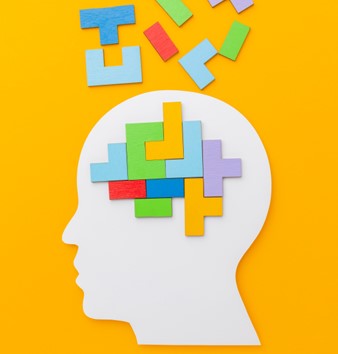The red thread of lateral thinking and soft skills

Image: Freepik
Video games and social enterprise
The red thread of lateral thinking and soft skills
Gaming for Social Change
The relationship between video games and the development of lateral thinking, as well as in general of the soft skills necessary for successful social enterprise, is a very topical issue. Although video games are often seen as merely recreational activities, they can actually have a positive impact on the development of transversal skills that are essential for success in both professional and social spheres. Let’s see how
Development of lateral thinking in video games
First of all, let us define lateral thinking; this is a form of creative thinking that seeks solutions to problems but in an unconventional way. It is an approach that goes beyond direct, linear logic to explore innovative alternatives that are hidden at first sight. But how can video games foster the development of lateral thinking?
Firstly, in the stimulus to solve complex problems. Many video games, especially strategy or puzzle games, require players to solve complex problems in non-obvious ways. For example, a game like Portal challenges players to use environments in ingenious ways to overcome obstacles, thus developing the ability to think outside the box.
Video games often confront players with unexpected situations that require an immediate and creative response. This helps to develop the ability to adapt quickly to new circumstances, a crucial skill in dynamic and challenging contexts such as social enterprises.
Moreover, in many games, players have to make decisions that affect the outcome of the story or game. These choices stimulate critical thinking and evaluation of consequences, encouraging broader and more creative thinking than more obvious and immediate solutions or solutions with a less broad perspective.
Video games and the development of soft skills
In short, soft skills are non-strictly technical, yet transversal skills that are essential for working well with others and achieving both individual and common goals. Among the most important soft skills are communication management, collaboration spirit, time management, stress management, leadership and even resilience. But how can video games develop soft skills? First of all, by stimulating collaboration and teamwork. Indeed, multiplayer games, especially online games, require players to work together to achieve a common goal. League of Legends, Overwatch or Fortnite, by way of example, require constant communication, coordination and cooperation between team members, skills that are crucial to the success of any social enterprise.
Moreover, in many team games, leadership dynamics emerge where some players take the leadership role. These players learn to motivate others, make strategic decisions and manage resources efficiently, all skills that can be transferred to the management of a social enterprise.
In addition, video games also stimulate frustration management, perseverance and the ability to cope with failure. In a social entrepreneurial environment, where difficulties are inevitable, the ability to stay motivated and learn from one’s mistakes is crucial.
Finally, many games, especially those of simulation or strategy, require players to manage limited resources in a timeframe established in advance. This helps players develop good time management skills, a crucial skill for those running a social enterprise, where financial and time resources are often limited and subject to stringent regulations.
Video Games and the Social Role of Business
As is well known, social enterprises are organisations that seek to solve social, economic or environmental problems using innovative business models. In this context, skills developed through video games can be particularly useful, especially at a time when creativity and adaptability are essential to tackle complex and ever-changing challenges.
For one thing, video games can inspire innovative solutions to social issues. For instance, the playful approach used to address complex issues in games can be a great tool to raise awareness and motivate people on social issues through immersive experiences. Indeed, many simulation games, such as SimCity or Sid Meier’s Civilization, require players to understand the interconnectedness between different elements of a system. This kind of systemic vision is essential for social enterprises, which have to deal with complex problems involving various actors and resources.
In addition, empathy and understanding of different points of view can be stimulated in some video games, particularly in narrative games or those that place the player in the shoes of characters with different life experiences (such as The Last of Us). Here, players can develop greater empathy and understanding of the difficulties of others, a fundamental quality when working for the good of the community.
In summary, contrary to what is often thought, video games are not only a form of entertainment, but can also be a powerful growth tool for the development of lateral thinking and soft skills in general. The skills one acquires through play, such as creativity, team and stress management, leadership, and resilience, are all fundamental resources for the success of a social enterprise. In an increasingly complex and interconnected world, these skills are crucial for facing challenges and building sustainable and innovative solutions.
